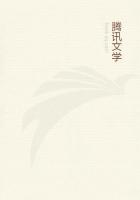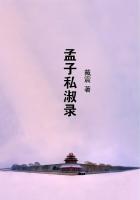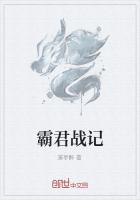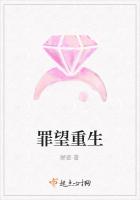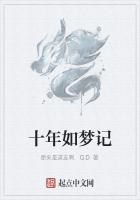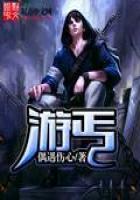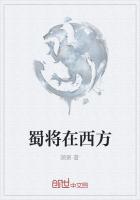THE ORIGINAL meaning of the goddess Isis is still more difficult to determine than that of her brother and husband Osiris. Her attributes and epithets were so numerous that in the hieroglyphics she is called the many-named, the thousand-named, and in Greek inscriptions the myriad-named. Yet in her complex nature it is perhaps still possible to detect the original nucleus round which by a slow process of accretion the other elements gathered. For if her brother and husband Osiris was in one of his aspects the corn-god, as we have seen reason to believe, she must surely have been the corn-goddess. There are at least some grounds for thinking so.
For if we may trust Diodorus Siculus, whose authority appears to have been the Egyptian historian Manetho, the discovery of wheat and barley was attributed to Isis, and at her festivals stalks of these grains were carried in procession to commemorate the boon she had conferred on men. A further detail is added by Augustine. He says that Isis made the discovery of barley at the moment when she was sacrificing to the common ancestors of her husband and herself, all of whom had been kings, and that she showed the newly discovered ears of barley to Osiris and his councillor Thoth or Mercury, as Roman writers called him. That is why, adds Augustine, they identify Isis with Ceres.
Further, at harvest-time, when the Egyptian reapers had cut the first stalks, they laid them down and beat their breasts, wailing and calling upon Isis. The custom has been already explained as a lamen for the corn-spirit slain under the sickle. Amongst the epithets by which Isis is designated in the inscriptions are Creatress of green things, Green goddess, whose green colour is like unto the greenness of the earth, Lady of Bread, Lady of Beer, Lady of Abundance. According to Brugsch she is not only the creatress of the fresh verdure of vegetation which covers the earth, but is actually the green corn-field itself, which is personified as a goddess. This is confirmed by her epithet Sochit or Sochet, meaning a corn-field, a sense which the word still retains in Coptic. The Greeks conceived of Isis as a corn-goddess, for they identified her with Demeter. In a Greek epigram she is described as she who has given birth to the fruits of the earth, and the mother of the ears of corn; and in a hymn composed in her honour she speaks of herself as queen of the wheat-field, and is described as charged with the care of the fruitful furrow's wheat-rich path. Accordingly, Greek or Roman artists often represented her with ears of corn on her head or in her hand.
Such, we may suppose, was Isis in the olden time, a rustic Corn-Mother adored with uncouth rites by Egyptian swains. But the homely features of the clownish goddess could hardly be traced in the refined, the saintly form which, spiritualised by ages of religious evolution, she presented to her worshippers of after days as the true wife, the tender mother, the beneficent queen of nature, encircled with the nimbus of moral purity, of immemorial and mysterious sanctity. Thus chastened and transfigured she won many hearts far beyond the boundaries of her native land. In that welter of religions which accompanied the decline of national life in antiquity her worship was one of the most popular at Rome and throughout the empire. Some of the Roman emperors themselves were openly addicted to it. And however the religion of Isis may, like any other, have been often worn as a cloak by men and women of loose life, her rites appear on the whole to have been honourably distinguished by a dignity and composure, a solemnity and decorum, well fitted to soothe the troubled mind, to ease the burdened heart. They appealed therefore to gentle spirits, and above all to women, whom the bloody and licentious rites of other Oriental goddesses only shocked and repelled. We need not wonder, then, that in a period of decadence, when traditional faiths were shaken, when systems clashed, when men's minds were disquieted, when the fabric of empire itself, once deemed eternal, began to show ominous rents and fissures, the serene figure of Isis with her spiritual calm, her gracious promise of immortality, should have appeared to many like a star in a stormy sky, and should have roused in their breasts a rapture of devotion not unlike that which was paid in the Middle Ages to the Virgin Mary. Indeed her stately ritual, with its shaven and tonsured priests, its matins and vespers, its tinkling music, its baptism and aspersions of holy water, its solemn processions, its jewelled images of the Mother of God, presented many points of similarity to the pomps and ceremonies of Catholicism. The resemblance need not be purely accidental.
Ancient Egypt may have contributed its share to the gorgeous symbolism of the Catholic Church as well as to the pale abstractions of her theology. Certainly in art the figure of Isis suckling the infant Horus is so like that of the Madonna and child that it has sometimes received the adoration of ignorant Christians. And to Isis in her later character of patroness of mariners the Virgin Mary perhaps owes her beautiful epithet of Stella Maris, Star of the Sea, under which she is adored by tempest-tossed sailors. The attributes of a marine deity may have been bestowed on Isis by the sea-faring Greeks of Alexandria. They are quite foreign to her original character and to the habits of the Egyptians, who had no love of the sea. On this hypothesis Sirius, the bright star of Isis, which on July mornings rises from the glassy waves of the eastern Mediterranean, a harbinger of halcyon weather to mariners, was the true Stella Maris, the Star of the Sea.


